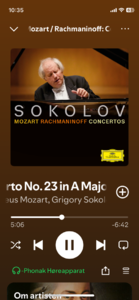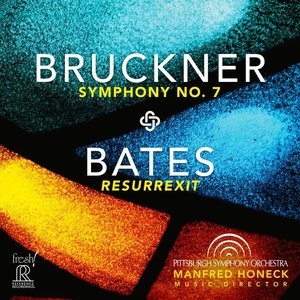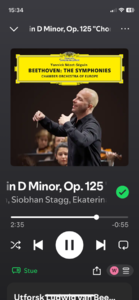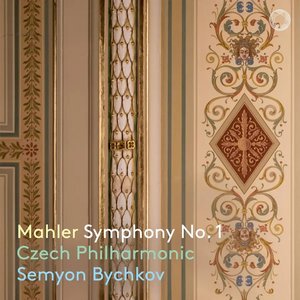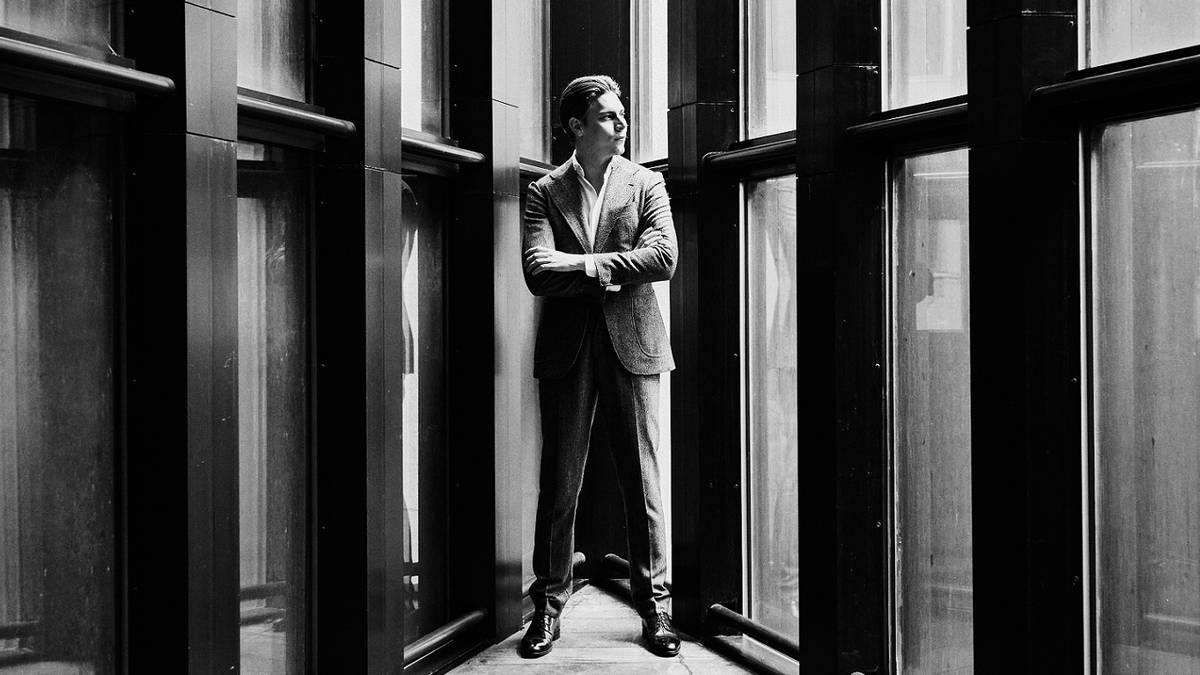There is another "live" recording which, in my opinion, approaches that of Rattle's in Berlin and fortunately is available on CD. In 1969 Jascha Horenstein performed the work at the BBC Proms at the Royal Albert Hall in London with the New Philharmonia and a tape of the BBC broadcast has found its way on to a number of issues since then. (Music and Arts CD-4727, Descant 02 - available from Berkshire Record Outlets). The opening of the work is deeply imposing with a real funereal tread in the strings, straight out of the Fifth Symphony - a remarkable effect. Notice also the high woodwind squealing out of the texture. As ever, Horenstein shows himself to be the master of the total sound. What he also achieves in the exposition is what Rattle tried to do but failed and that is relate the tempo changes to each other, knitting the exposition together with a sure grip. He also manages tenderness and real sweep in the second subject. Then in the wonderful development section there's a palpable inner tension that Horenstein somehow seems to carry over from the start and which will distinguish this reading of the first movement to the end. Evidence again of Horenstein's ability to "read" an entire movement and then deliver it almost in one "breath". At the recapitulation note the slight pause before it starts, like a "pause for breath", then beneath the earthy trombone solo the presence of a lower string cushion that I think is unique. His delivery of this passage is not pretty, though. It's more reminiscent of the trombone solo passages in the first movement of the Third than many I have heard and shows a true natural grandeur. So complete is Horenstein's grasp of every aspect of this first movement that the end is genuinely triumphant, the feeling that you have lived through something important. The second movement's opening has about it an analytical quality but this then gives way to a freer treatment of the main material and the Trios. Horenstein seems to see these as much lighter passages in tone than many of his colleagues, recognising the need for contrasts in this work. Overall he is a full two minutes quicker than Abbado and Bernstein, for example, but the music never sounds rushed. Indeed, it sounds perfectly natural with wit and irony that's a joy to hear. The second Trio then slows a little, allowing Horenstein to explore the possibilities of the music. In the Scherzo, contrasting again, Horenstein favours a slightly slower tempo with the shadows taken care of in his care for lower registers helped by the large acoustic. Mood rather than effect seems to be Horenstein's philosophy where the temptation must be to go for the latter. But he wasn't that kind of conductor. He always looked beyond the obvious and since this "one off" concert performance is available to us we can appreciate how the benefits of this kind of approach accrue over time. It's such a pity he never recorded it commercially, of course. There are rough patches to the playing here and also the way the recording was made means the sound you hear is not ideal. However, it's hard to believe a studio recording would have bettered this in anything other than those areas. His second Nachtmusik, like Rattle's, is quite quick, more andante, which I think is right in that it suits the concept of a serenade far better. I would also make the suggestion that since this music doesn't represent Mahler at his best it might be better if it doesn't detain us too long. To those who like their Mahler indulgent I would point to this movement needing to provide a bridge to the finale, which under Horenstein it does, making his last movement sound a natural conclusion to this work, marking the end of our journey out of Night and into Day more successfully than most. The fact that he and his orchestra play it for all it's worth just adds the cherry to the icing on the cake with the momentum kept up to a degree other conductors only dream of. At the close the threads are pulled together and the very end, horns blazing like a great shout of joy, means you will want to join in the applause of the audience. Those strange, haunted, benighted souls for whom perfection of sound and playing come before everything will moan that this version falls short of their definition of the acceptable. But I believe this to be one of the greatest Mahler Sevenths on the market.







